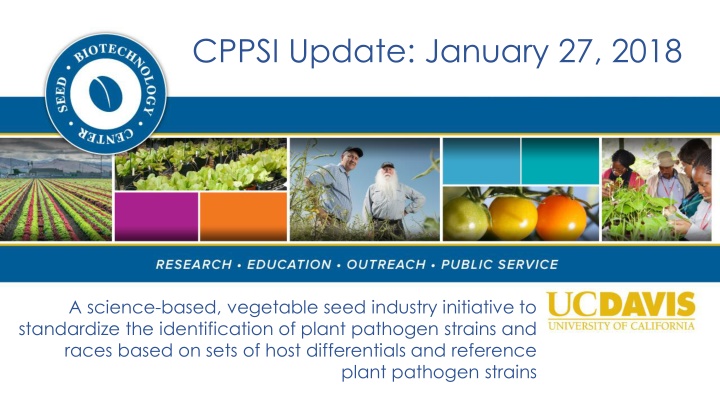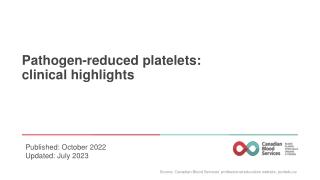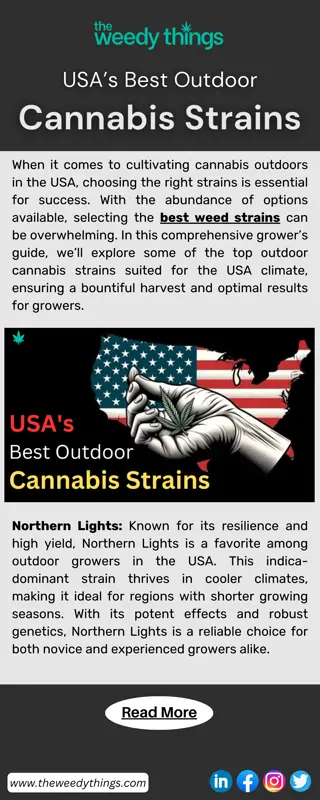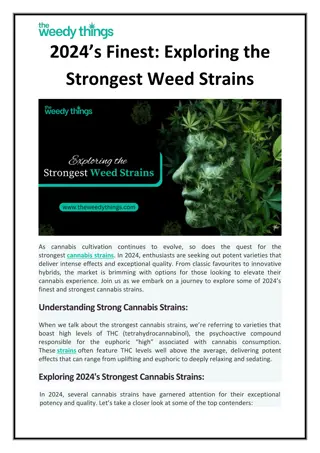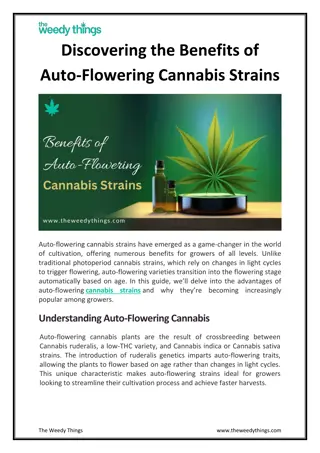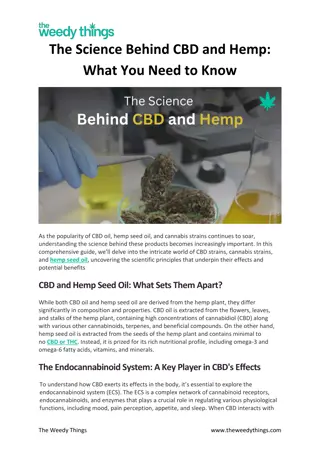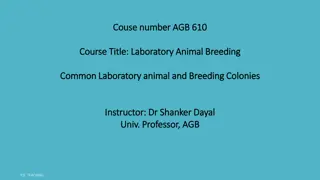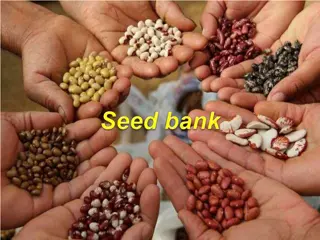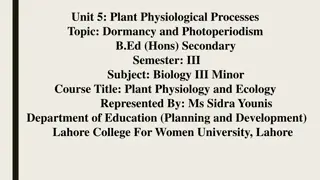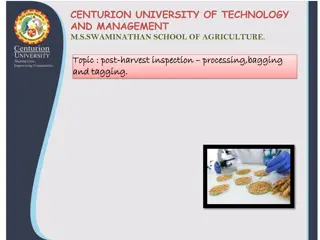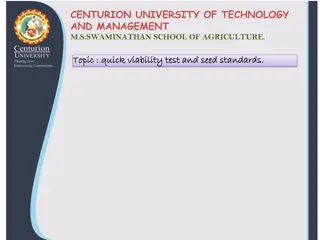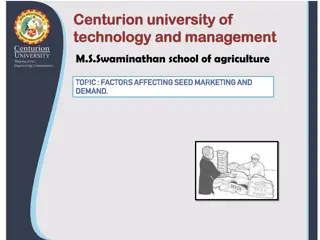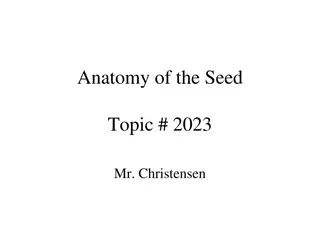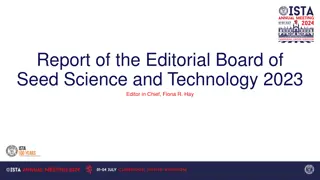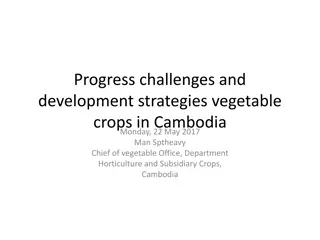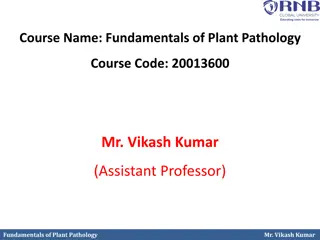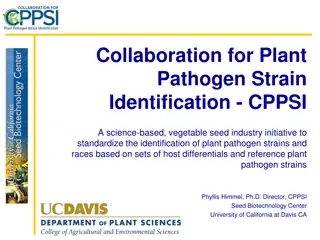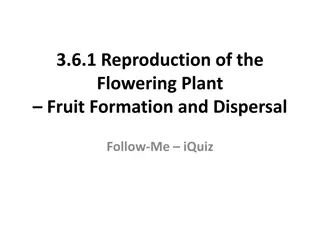Standardizing Identification of Plant Pathogen Strains in Vegetable Seed Industry
Focused on standardizing plant pathogen strain identification, the CPPSI initiative by UC Davis works towards enhancing the industry's capabilities. Through reference materials and strategic collaborations, CPPSI aims to streamline disease management processes and promote sustainability. The project involves securing funding, developing membership models, and progressing in reference material development for various plant diseases. CPPSI is at the forefront of facilitating information exchange and technological advancements in the vegetable seed sector.
Uploaded on Sep 18, 2024 | 1 Views
Download Presentation

Please find below an Image/Link to download the presentation.
The content on the website is provided AS IS for your information and personal use only. It may not be sold, licensed, or shared on other websites without obtaining consent from the author.If you encounter any issues during the download, it is possible that the publisher has removed the file from their server.
You are allowed to download the files provided on this website for personal or commercial use, subject to the condition that they are used lawfully. All files are the property of their respective owners.
The content on the website is provided AS IS for your information and personal use only. It may not be sold, licensed, or shared on other websites without obtaining consent from the author.
E N D
Presentation Transcript
CPPSI Update: January 27, 2018 A science-based, vegetable seed industry initiative to standardize the identification of plant pathogen strains and races based on sets of host differentials and reference plant pathogen strains
CPPSI @ UC Davis Final year of the initial three year funding commitment from Founding Sponsors CPPSI Advisory Council meetings twice a year during the ASTA meetings held in June and January CPPSI Working Group meets monthly via web conference Business Plan updated and approved by Advisory Council Continued development of Reference Materials Expanded roles: ISF DRT WG, Harmores 3, Melon PM WG, Emerging diseases website only available to CPPSI members New CPPSI membership model based on annual revenue; similar to ASTA and CSA membership models Focus on sustainability through new & renewed memberships, grants, service opportunities
CPPSI @ UC Davis Secured commitments from all Founding Sponsors to renew 3 year memberships Awarded CDFA SCBG funding for 2.5 years in support of continued CPPSI growth $340,000 1 Nov 2017 31 Mar 2020 Waiting on final UC Davis approval to start charging nonmembers for differentials and reference strains One Stop Shopping service Can still access differentiating hosts from the USDA via GRIN Coordinate with the launch of the round 2 Reference Materials February issue of Seed World feature article on CPPSI
Reference Material Development CPPSI WG and Advisory Council selection and approval Schedule seed increases Phytosanitary and functional testing Identify and secure source(s) of reference strains Storage, inoculation, evaluation and distribution protocols approved by CPPSI WG Comparative testing with GEVES, Naktuinbouw Develop white paper Material Transfer Agreements where needed Deposit Reference Materials for distribution Announce availability on www.cppsi.org Review and update white papers, check strain viability and replenish reference materials as needed
Progress in Reference Material Development 2016: Delayed: Round 2 (Nagoya) Fusarium wilt of watermelon complex fall 2018 Downy mildew of lettuce June 2018 TSWV of pepper MTA June 2018 TSWV of tomato MTA June 2018 2017: June 2019: Round 3 (Harmores 3) Powdery mildew of melon Melon PM WG Fusarium wilt of tomato seed increases scheduled Root knot nematode of tomato seed increases scheduled
Round 4: note addition of row crop diseases Tomato Verticillium, Spot, Speck or Early blight Rhizoctonia solani in brassicas Downy mildew in table beets Cucurbit Potyviruses, CMV, Anthracnose Corn Common rust Pepper PVY, TEV and PepMV Lettuce LMV Hot Pepper CMV Sweet pepper Tobamoviruses Cucumber CMV Cotton Bacterial blight
CPPSI Working Group Members Staci Rosenberger Monsanto Vegetable Seeds Francois Bertrand Monsanto Vegetable Seeds Nicki Philips Enza Zaden Phil Brown Sakata Marco Bello Sakata Surendranath Baliji Bayer Crop Sciences Vegetable Seeds Catalina Cespedes Bayer Crop Sciences Vegetable Seeds Phyllis Himmel (Chair) UC Davis Seed Biotechnology Center Elisabetta Vivoda VoloAgri Alyson Thornton HM Clause TBD - Syngenta Lindsey du Toit Washing State University Kimberly Webb USDA ARS, Phytopathology Stephanie Greene - USDA ARS, Plant Genetic Resources Conservation
The continued support of our seven vegetable seed industry Founding Sponsors is appreciated Bayer Enza Zaden HM Clause Monsanto Rijk Zwaan Sakata Syngenta
